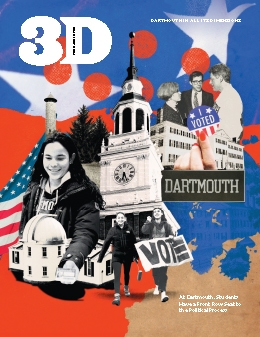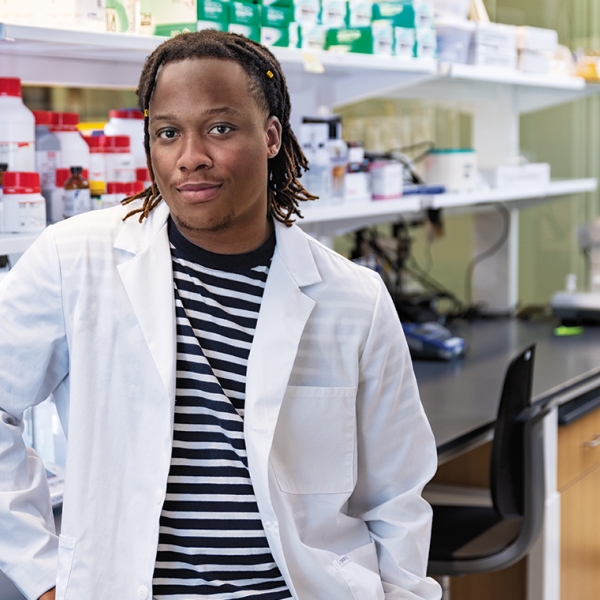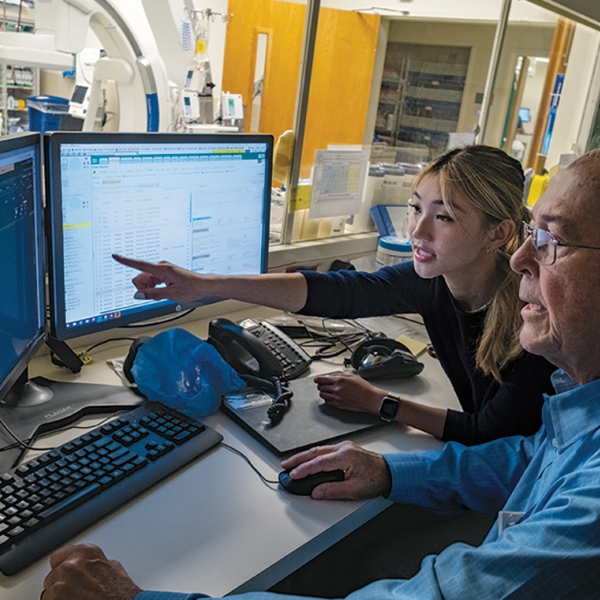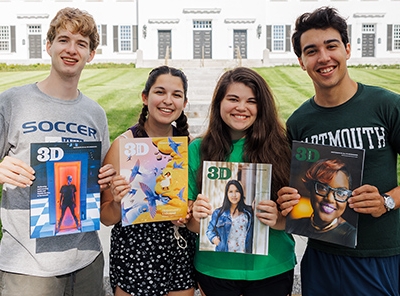Growing up in Brooklyn, New York, Alicia Cage '26 longed for a change of scenery for her college experience. "I was so comfortable in an urban environment. I knew that I wanted to find somewhere different—somewhere I could grow and find community. I felt there was no better place I could do that than Dartmouth."
Alicia transitioned to Dartmouth via the First-Year Student Enrichment Program (FYSEP), which prepares first-generation low-income students to thrive academically and in the greater Dartmouth community. "It was a bit scary for my parents to leave me here on campus," says Alicia, who earned a four-year scholarship to Dartmouth through the QuestBridge National College Match. "They felt better knowing that there were other Jamaican students here, and I felt better learning and growing with people who understood the challenges I've been through. FYSEP really instilled in me the belief that you're not defined by your circumstances; you're defined by what you do going forward."
The aspiring doctor quickly found her focus in global health thanks to a biology class with Dr. Lee Witters, who advises undergraduates and teaches at Dartmouth's Geisel School of Medicine. Soon after, Alicia applied to become a Global Health Fellow at Dartmouth's Dickey Center for International Understanding. Together with leading experts, the cohort discusses how to best address complex global challenges around health and wellness. "Growing up in New York, I saw a lot of health issues firsthand. I realized I don't want to be a doctor who only works one-on-one; I want to affect communities and make change on a larger scale."
Today, Alicia is part of a microbiology lab headed by Geisel professor Jennifer Bomberger, where she's contributing to research that seeks to alleviate symptoms of cystic fibrosis. "The medical students and undergraduates work together and support each other. That's a beautiful thing."
Outside of the classroom, Alicia serves as an undergraduate advisor, a student leader who supports their peers in Dartmouth's residential communities. She is also president of Dartmouth's National Pan-Hellenic Council, the umbrella organization for nine historically Black fraternities and sororities. "I love being in a position where I can focus on unifying people and creating spaces to have fun. I'm very committed to ensuring that people who look like me and come from similar backgrounds to me have space to do so."
Two years later, Alicia is confident in her decision to choose Dartmouth. "When I was little, I had no idea that somebody from my neighborhood could come to a place like Dartmouth. Now I can say, 'It's possible. I'm proof that you can do it, too.'"
Photograph by Don Hamerman, pictured inside Rauner Special Collections Library





